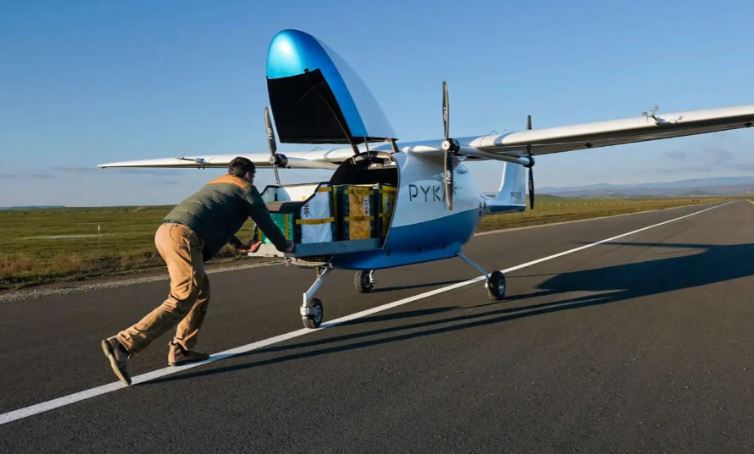Founded in 2017 in CEO Michael Norcia’s parent’s garage, California-based startup Pyka is now a leader in electric unmanned aerial vehicle (UAV) technology. Initially, the focus was on crop spraying rather than cargo, with fewer regulations and hurdles to clear.
By May 2019, Pyka certified the Egret for commercial operation with the New Zealand Civil Aviation Authority, making it the first human-scale electric aircraft for commercial work.

Back in 2020, Pyka launched an autonomous electric crop duster called the Pelican. Now the company has developed a cargo-carrying version that’s billed as the world’s largest autonomous electric cargo airplane.
The Pelican Cargo uncrewed aerial system has been developed for last-mile express logistics operations, with Pyka noting that it would be particularly useful for delivering cargo to remote rural communities.
It features a 50-kWh Li-ion battery pack that offers a per-charge range of up to 200 miles (320 km) – plus a 20-minute reserve. Four 25-kW (33.5-hp) electric motors power the two fixed-pitch props to the front and back of each wing, and the aircraft benefits from a fully redundant propulsion, controls, and sensor suite.
The cargo flyer measures 6.1 m in length and stands 2.1 m high. A 181-kg payload is front-loaded into the 1.85 m3 cargo space via a pop-up nose and sliding tray. The aircraft has a total wingspan of 11.5 m and needs a 183 x 17-m runway to get in the air, after which it flies at a cruise speed of between 111-148 km/h.
The company believes that electrification and automation will make aviation safer while reducing CO2 emissions. By going electric, customers can save on volatile fuel costs. Not to mention the money saved without requiring a crew to operate it (only one safety monitor is needed). Fewer expenses and labor costs can result in additional trips per day and less waiting time between deliveries, saving both businesses and customers in the long run.
According to electrek/newatlas














